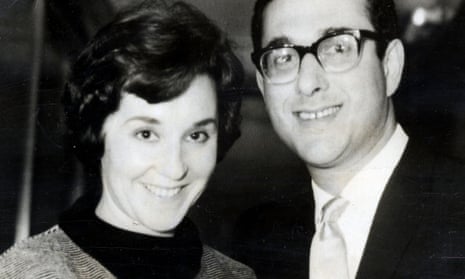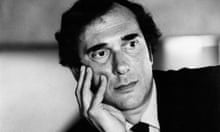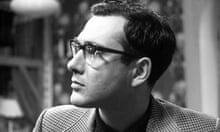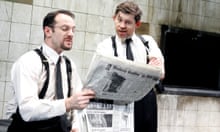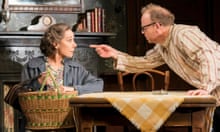For 60 years actor Henry Woolf was the intimate friend of Harold Pinter, the Nobel laureate widely judged the greatest theatrical voice Britain has produced in the past 50 years. Now Woolf has revealed extraordinary details of their long and fond relationship in a memoir that tells of the struggle the playwright once had to be alone with broadcaster Joan Bakewell during the love affair that inspired his most popular play, Betrayal. It also tells of the painful end of Pinter’s first marriage.
Speaking to the Observer Woolf, who commissioned and directed Pinter’s first play The Room in Bristol in 1957, recalled the “awful shock” it had been to Vivien Merchant, the gifted actress Pinter married in 1956, when the famous writer later fell in love with Lady Antonia Fraser, the second wife who remained with him until his death at 78 on Christmas Eve, 2008. Woolf said Pinter had worried “all the time” about Merchant, who is now best known for her moving screen role in the film Alfie and who died in 1982. Pinter, Woolf said, had always tried to “keep a protective eye over her”.
“Vivien started to drink very heavily; she was determined to kill herself, I suppose,” Woolf writes in his new book. “Not just to punish Harold, but to escape from an unbearable life. Perhaps modern women don’t kill themselves for love; I wouldn’t know. But Vivien certainly did.”
Woolf’s memoir, Barcelona is in Trouble, also describes the bus trips Woolf was once forced to take around London in the 1960s while Pinter and Bakewell met clandestinely inside his rented Kentish Town bedsit, a location moved to Kilburn in the play.
“The immediate effects of their visits was that I had to be out when they were in. I found myself taking long bus rides to places like Plumstead, where I had never been before. I didn’t mind. Harold had helped me out often enough in the past; now it was my turn,” Woolf writes. He spoke this weekend about the obviously strong emotional connection the young lovers had: “It was a relationship one felt somehow was of high quality, in the conviction of their emotions I mean.”
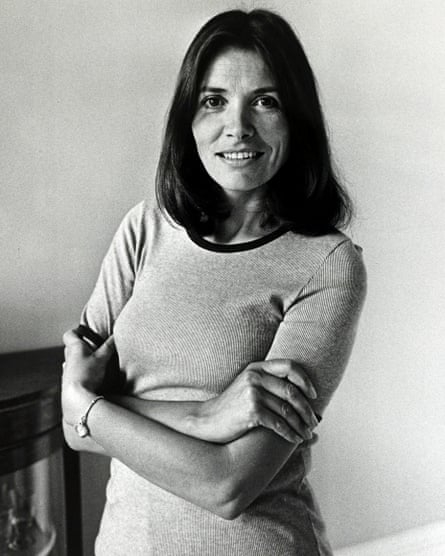
Pinter had proposed the unusual arrangement by summoning his schoolboy pal to a London pub to meet Bakewell. “Look, Henry, we’re in a bit of a fix, Joan and I. We’d like to see a bit more of each other, if you see what I mean. But we have nowhere to go,” Woolf recalls Pinter explaining.
But when the amenable Woolf began to date his future wife Susan, keeping the secret became more complicated. The actor told her that he sometimes lent his bedsit out to “star-crossed lovers”. She was later surprised to find out who they were.
Woolf’s book paints a nostalgic but unsentimental picture of his boyhood friendship with Pinter in east London and of the other members of the “Hackney gang” – a small band of firm friends who met at Hackney grammar school in the early 1940s. As Jews, Woolf and Pinter were sometimes set upon by local fascist thugs, Woolf recounts, but Pinter, who was a talented schoolboy sportsman, gave as good as he got.
These memories are to be revisited on Monday when Woolf himself, now 87, performs in a play about his youth with Pinter staged at the British Library in London. Pinter, Woolf said, valued his friendship with his gang very highly, staying in touch as his career progressed and introducing them all to people he judged interesting, such as the American playwright Arthur Miller. Now Woolf, as the only surviving member of the gang, wants to celebrate Pinter’s loyalty.
Pinter captured some of the gang’s youthful escapades in his only novel, The Dwarfs, and the new play, Spider Love, has been adapted from a script originally written in 1975 by late gang member Mick Goldstein, who had been responding to finding himself a character in The Dwarfs. Goldstein’s son Jeremy has reworked the play using letters between the Hackney gang now on public record at the British Library’s Harold Pinter Archive. Monday’s event is preceded by a conversation between Woolf and the Guardian’s theatre critic and Pinter biographer Michael Billington.
Woolf’s book features theatrical revelations including the fact that Quentin Crisp, the eccentric writer and raconteur, was the inspiration for a key character in The Room.
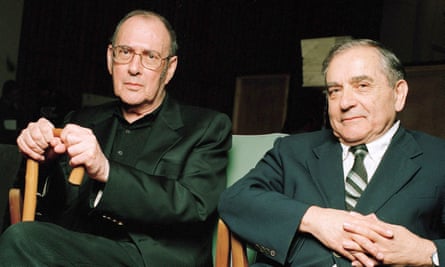
Both Bakewell and Fraser have since written of their love for Pinter. In 2003 Bakewell, now a dame, released an autobiographical account of their affair in her book The Centre of the Bed, briefly upsetting Pinter. Fraser’s own memoir Must You Go? was published two years after her husband’s death and was largely a tribute the happiness they had enjoyed together.
Woolf’s new book recalls Fraser’s devoted care of Pinter during his long final illness and recounts the playwright telling him how lucky he felt to have her. Nevertheless, Woolf clearly still feels sad about the fate of Merchant, the mother of Pinter’s only child, Daniel. She was, he believes, a clear influence on his writing. “One saw her so often in Harold’s plays, under different guises, different bits of herself. Ruth in The Homecoming, Kate in Old Times. He couldn’t stop writing about her,” Woolf writes.
The old school friends had only a couple of arguments, or “tiffs”, according to Woolf: once when the actor felt his literary skills had been judged to have fallen short when he was invited to complete a couplet in a parlour game, and once when Pinter suspected that Woolf was critical of the difference in the social circles they came to move in.
But when the friends met for the last time, shortly before Pinter’s death, the shared affection was evident. Saying farewell, the pair exchanged catchphrases from their favourite wartime radio show, ITMA (It’s That Man Again), starring Tommy Handley. “TTFN [Ta-ta for now]” were Woolf’s last words to Pinter.
